Capitol Reflections: 2020 Session Issue 7

“The very purpose of a Bill of Rights was to withdraw certain subjects from the vicissitudes of political controversy. One’s right to life, liberty, and property, to free speech, a free press, freedom of worship and assembly, and other fundamental rights may not be submitted to vote; they depend on the outcome of no elections.” - U.S. Supreme Court Justice Robert Jackson – W. Virginia State Bd. Of Education v Barnette, 319 U.S. 624, 638 (1943)
Progress on the Right to Repair
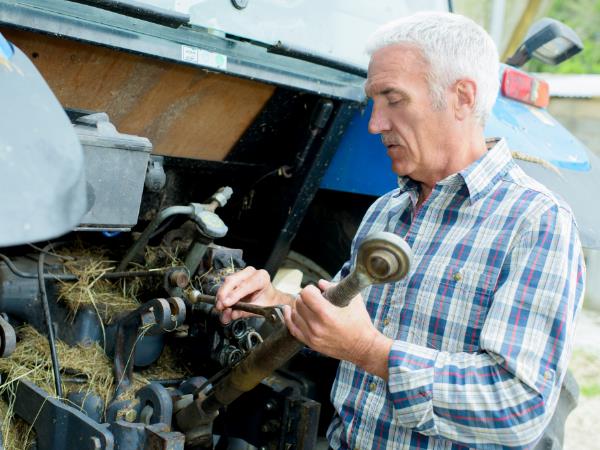 BOISE - On Thursday, the House Energy, Environment, and Technology Committee held a hearing for H452, Representative Britt Raybould’s (R Rexburg) Right to Repair bill. After several hours of testimony, the committee voted on a substitute motion to hold the bill in committee (to kill the bill). That motion failed on a vote of 7-8. The committee then unanimously agreed to the original motion to send it to General Orders for possible amendments. Thus, the bill will now be able to be considered by the full House in General Orders for amendments that any house member can propose. We are committed to doing our best to ensure that these amendments do not limit a farmer’s right to repair while addressing some of the concerns raised in committee. We would urge you to contact your Representatives to express your support of the right to repair agricultural equipment. If you have any questions regarding Farm Bureau policy, please do not hesitate to send an email or call the Boise office.
BOISE - On Thursday, the House Energy, Environment, and Technology Committee held a hearing for H452, Representative Britt Raybould’s (R Rexburg) Right to Repair bill. After several hours of testimony, the committee voted on a substitute motion to hold the bill in committee (to kill the bill). That motion failed on a vote of 7-8. The committee then unanimously agreed to the original motion to send it to General Orders for possible amendments. Thus, the bill will now be able to be considered by the full House in General Orders for amendments that any house member can propose. We are committed to doing our best to ensure that these amendments do not limit a farmer’s right to repair while addressing some of the concerns raised in committee. We would urge you to contact your Representatives to express your support of the right to repair agricultural equipment. If you have any questions regarding Farm Bureau policy, please do not hesitate to send an email or call the Boise office.
As a side note, the fact that this bill was sent to the amending order rather than killed in committee shows the commitment that those legislators showed to helping Idaho farmers find a solution to this issue. Many of the legislators pointed out that they know the farmers are facing a problem and want to make sure the conversation continues on a path forward to solve these issues. If your Representative is on the committee, please thank them for their action yesterday. Considering how many states have simply killed these bills in committee, we are grateful that the committee is committed to finding a solution for Idaho farmers. IFBF supports H452.
Top of the page
Ag Land Valuation Clarified
 BOISE - This week the House Revenue and Taxation Committee unanimously approved H495 which is sponsored by Rep Megan Blanksma (R-Hammett). H495 removes the perception that agricultural land receives an exemption from paying property taxes by clarifying the process that county assessors use to value agricultural properties. Currently, assessors are directed by statute to value ag land as development land and then exempt the “speculative” portion of that land down to its agricultural value. The ag land values are currently determined by capitalizing either the ag land rental rate or the owner’s portion of a crop share agreement. This confusing and convoluted system has caused issues for assessors as well as ag landowners for years. H495 simply removes all the smoke and mirrors from assessing ag lands and requires assessors to directly value ag lands at their actual use-value, utilizing the same capitalization methods that are currently in place, without requiring the assessment at development value then exempting off a portion down to actual use-value. Therefore, nothing changes except for removing the first part of the convoluted exercise which is unnecessary, and there would no longer be a fictitious exemption in code for ag land. H495 will now be heard on the House floor next week prior to advancing to the Senate for a hearing in the Local Government and Tax Committee which is chaired by Senator Jim Rice (R-Caldwell). IFBF supports H495.
BOISE - This week the House Revenue and Taxation Committee unanimously approved H495 which is sponsored by Rep Megan Blanksma (R-Hammett). H495 removes the perception that agricultural land receives an exemption from paying property taxes by clarifying the process that county assessors use to value agricultural properties. Currently, assessors are directed by statute to value ag land as development land and then exempt the “speculative” portion of that land down to its agricultural value. The ag land values are currently determined by capitalizing either the ag land rental rate or the owner’s portion of a crop share agreement. This confusing and convoluted system has caused issues for assessors as well as ag landowners for years. H495 simply removes all the smoke and mirrors from assessing ag lands and requires assessors to directly value ag lands at their actual use-value, utilizing the same capitalization methods that are currently in place, without requiring the assessment at development value then exempting off a portion down to actual use-value. Therefore, nothing changes except for removing the first part of the convoluted exercise which is unnecessary, and there would no longer be a fictitious exemption in code for ag land. H495 will now be heard on the House floor next week prior to advancing to the Senate for a hearing in the Local Government and Tax Committee which is chaired by Senator Jim Rice (R-Caldwell). IFBF supports H495.
Production Hemp Bill Sent to Senate Floor
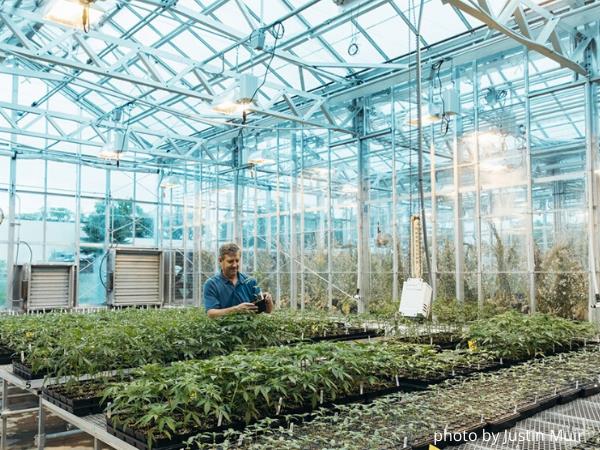 BOISE - The Senate State Affairs Committee introduced a production hemp bill (S1345) this week, which was then sent to the Senate Agricultural Affairs Committee to be heard and debated. Farm Bureau member Tim Cornie testified in favor of the bill and expressed his desire to both grow and process hemp on his farm in the Magic Valley as soon as possible. Farm Bureau also testified in favor of the bill. The Committee voted 8-1 to send it to the Senate Floor with a do-pass recommendation. S1345 only deals with the transportation and production of industrial hemp by licensed individuals/operations; it does not remove hemp from the state’s Schedule I/Controlled Substances list.
BOISE - The Senate State Affairs Committee introduced a production hemp bill (S1345) this week, which was then sent to the Senate Agricultural Affairs Committee to be heard and debated. Farm Bureau member Tim Cornie testified in favor of the bill and expressed his desire to both grow and process hemp on his farm in the Magic Valley as soon as possible. Farm Bureau also testified in favor of the bill. The Committee voted 8-1 to send it to the Senate Floor with a do-pass recommendation. S1345 only deals with the transportation and production of industrial hemp by licensed individuals/operations; it does not remove hemp from the state’s Schedule I/Controlled Substances list.
There are three sections in the bill. Section 1 deals with the transportation of industrial hemp by adding a new section to Title 67, Chapter 29 of Idaho Code. Amongst other things, this section defines hemp just as Congress did in the 2018 Farm Bill (i.e. Cannabis sativa L., 0.3% THC or less). This section also states that any rule formulated and recommended by the Idaho State Police (ISP) and the Idaho State Department of Agriculture (ISDA) regarding the interstate and intrastate hauling of hemp that is broader in scope or more stringent than federal law or regulations will be subject to additional requirements to inform lawmakers. All these rules would come before the legislature for their review and final approval.
The rest of Section 1 outlines the procedures and law enforcement aspects of hauling hemp in and through the state pursuant to a license under the provisions of federal law. It also outlines the violations and penalties for those who do not comply. The bill does specify that the provisions of this section do not apply to any hemp derived products that contain no THC. This would include CBD oil with 0% THC as currently allowed under state law.
Section 2 of the bill adds a new chapter in Title 22 of Idaho Code which contains the agriculture statutes for the state. This section provides legislative intent language allowing for the production of industrial hemp in Idaho, and also the stated intention of the legislature to assume primary regulatory authority over the crop. The bill then again defines hemp in this part of Idaho Code, amongst other terms. Additionally, it calls for ISDA to create a State Hemp Plan by June 15, 2020 to be submitted to USDA for approval. This plan would be formulated in consultation with the Governor’s office, ISDA, ISP, and Idaho’s agriculture industry.
Furthermore, this section in the bill authorizes the production, processing and research of industrial hemp by licensed individuals, notwithstanding the provisions of the state’s Controlled Substances list. This means that only licensed growers, processors, and researchers would be permitted to possess, grow, and handle hemp in the state. The bill also allows for production, processing, and research to take place in Idaho pursuant to the rules promulgated under this statute and the 2018 Farm Bill until a state plan is accepted by the USDA. Though a 2020 growing season in Idaho is unlikely at this point, this language would allow for hemp production, processing, and research to occur once rules were in place.
Section 3 of the bill provides an emergency clause which would allow the bill to immediately become law upon its passage and approval. This would allow the state agencies to immediately start their authorized processes to allow for the production of hemp in Idaho.
Though this bill is not perfect, it would allow Idaho farmers the option to grow hemp, if they so choose. Currently, Idaho producers do not have this opportunity; but if passed, this bill would provide them the option. Hemp is a unique crop, with a large variety of uses, products, and capabilities. However, the crop can be volatile and pose financial risk. We advise our members, and any interested grower, to do their research and to establish a plan before proceeding.
IFBF Policy #9 states, “We support legalizing the production of industrial grade hemp with 0.3% THC or less in Idaho, and to authorize the University of Idaho and Idaho State Department of Agriculture to conduct research and pilot programs to determine suitable varieties to meet market demand.” IFBF supports S1345.
Top of the page
Wolf Hunting Season Expanded
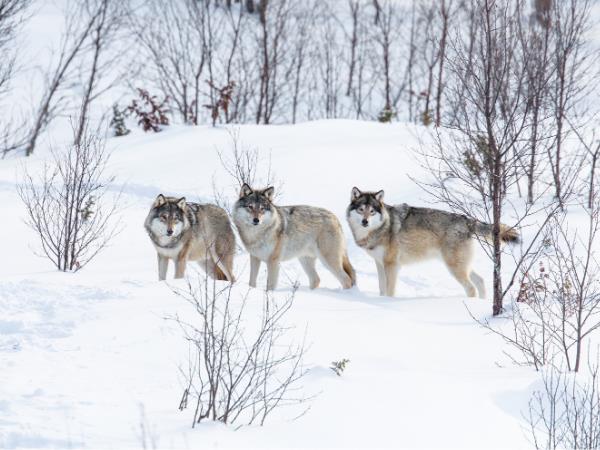 BOISE - During a conference call on Thursday, the Idaho Fish and Game Commission moved forward in adopting the nine wolf control proposals they had released to the public to comment on. The nine proposals extended wolf hunting and trapping seasons in hunting units throughout the state, but most importantly opened year-round hunting in units with chronic depredation. The nine modifications to the wolf seasons take effect immediately and will stay in effect for the 2019-20 and 2020-21 seasons. These changes are reflected in the digital version of the 2019-20 Idaho Big Game Seasons and Rules, which can be found online.
BOISE - During a conference call on Thursday, the Idaho Fish and Game Commission moved forward in adopting the nine wolf control proposals they had released to the public to comment on. The nine proposals extended wolf hunting and trapping seasons in hunting units throughout the state, but most importantly opened year-round hunting in units with chronic depredation. The nine modifications to the wolf seasons take effect immediately and will stay in effect for the 2019-20 and 2020-21 seasons. These changes are reflected in the digital version of the 2019-20 Idaho Big Game Seasons and Rules, which can be found online.
After Idaho Fish and Game recently released a new wolf population estimate of 1,500 wolves in the state, it became abundantly clear that Idaho is well above the federal recovery criteria number of 150 wolves and 15 breeding pairs. The press release from the Idaho Fish and Game department mentioned this fact while continuing to make this statement “Wolf predation on livestock and other domestic animals remains chronic in certain areas and would increase if the wolf population expands into southern Idaho. Wolf predation also continues to have a negative effect on elk populations in some backcountry areas.” It has become clear that more needs to be done to manage the robust population of wolves in the state and the Commission took action.
More than 27,000 comments were received during the comment period on the nine proposals, 5,675 of those comments were from Idahoans. When looking solely at the Idaho residents’ comments in response to the proposals, 55% were in support and 45% opposed expanding hunting/trapping seasons. If you were to look at the 27,000 comments, the supportive percentage drops to 15% and opposition to longer seasons jumped to 84%. Again, most of those comments came from out of the state, along with many coming from outside of the U.S. according to the press release.
These approved proposals come after the Commission also moved to increase the number of wolf tags an individual can purchase to 15 hunting and 15 trapping back at their January meeting. The Idaho Farm Bureau Federation thanks the Idaho Fish and Game Commission for their movement forward in taking steps to address the growing problem of robust wolf populations and the increasing amount of depredation cases in our state. We will continue communication with the Department and the Commission on our concerns surrounding wolves and discussions on productive ways that we can move forward in the state to address depredation issues.
IFBF policy #80 states “We support all methods of year-round wolf control and population management statewide.”
Top of the page
Expanded Grocery Tax Credit Advances
 BOISE - This week H494 was approved by the House Revenue & Taxation Committee chaired by Rep Gary Collins (R-Nampa). Since the committee previously rejected two different proposals to remove sales tax completely from groceries, H494 was the only option left on the table. H494 would expand the tax credit that all Idahoans receive currently to offset the sales tax paid on groceries from $100 per person to $135 per person. H494 provides additional tax relief to Idaho citizens while avoiding the need for additional bureaucracy to determine what food is taxable and what food is not. For example, is a frozen pizza purchased at a grocery store taxable? If not, is a Papa Murphy’s uncooked pizza taxable? If not, is a Domino’s pizza taxable? Where do you draw the line? We generally don’t tax services, and the only thing different about these pizza examples is the level of service received. It can get very complicated fast. Under H494 citizens can use the expanded credit to offset sales tax on food they purchase, regardless of whether it would fit the arbitrary bureaucratic definition of an eligible grocery item or not. Next week H494 will be voted on by the House. IFBF supports H494.
BOISE - This week H494 was approved by the House Revenue & Taxation Committee chaired by Rep Gary Collins (R-Nampa). Since the committee previously rejected two different proposals to remove sales tax completely from groceries, H494 was the only option left on the table. H494 would expand the tax credit that all Idahoans receive currently to offset the sales tax paid on groceries from $100 per person to $135 per person. H494 provides additional tax relief to Idaho citizens while avoiding the need for additional bureaucracy to determine what food is taxable and what food is not. For example, is a frozen pizza purchased at a grocery store taxable? If not, is a Papa Murphy’s uncooked pizza taxable? If not, is a Domino’s pizza taxable? Where do you draw the line? We generally don’t tax services, and the only thing different about these pizza examples is the level of service received. It can get very complicated fast. Under H494 citizens can use the expanded credit to offset sales tax on food they purchase, regardless of whether it would fit the arbitrary bureaucratic definition of an eligible grocery item or not. Next week H494 will be voted on by the House. IFBF supports H494.
Top of the page
Public Land "Access" Bill Introduced
 BOISE - Two weeks ago, the House Resources and Conservation Committee overwhelmingly rejected the introduction of a bill sponsored by the Idaho Wildlife Federation. It was the latest version of a bill they have been promoting for the last three years at the legislature, with very little success. IWF has, however, been successful in drumming up support amongst their members through various social media campaigns expressing outrage over contrived examples of access that has been “blocked” to public lands in Idaho. These campaigns have come back to bite IWF as committee members are not appreciative of their form emails and other pressure tactics to promote a flawed bill. Interestingly, after the bill was soundly rejected in the House, Senator Fred Martin brought a version of the same bill to the Senate Resources & Environment Committee for consideration. On a vote of 6-3, the bill was introduced after several committee members spoke against it or at least expressed reservations about the bill. Just what is so repugnant about this bill?
BOISE - Two weeks ago, the House Resources and Conservation Committee overwhelmingly rejected the introduction of a bill sponsored by the Idaho Wildlife Federation. It was the latest version of a bill they have been promoting for the last three years at the legislature, with very little success. IWF has, however, been successful in drumming up support amongst their members through various social media campaigns expressing outrage over contrived examples of access that has been “blocked” to public lands in Idaho. These campaigns have come back to bite IWF as committee members are not appreciative of their form emails and other pressure tactics to promote a flawed bill. Interestingly, after the bill was soundly rejected in the House, Senator Fred Martin brought a version of the same bill to the Senate Resources & Environment Committee for consideration. On a vote of 6-3, the bill was introduced after several committee members spoke against it or at least expressed reservations about the bill. Just what is so repugnant about this bill?
S1317 as proposed provides a mechanism for individual citizens to sue landowners who “block or otherwise interfere” with access to public lands. Unfortunately, the language is somewhat vague, and it provides incentives for citizen lawsuits against landowners by providing for attorney fees to be recovered if the citizen prevails against the landowner. This could lead to a landowner facing multiple lawsuits due to perceived “interference” with access to public lands such as simply posting land through which a public right of way travels as private. Although the public does have the right to travel through private land on recorded rights-of-way to access public lands, they have no right to enter the private land through which the access runs. The landowner is fully within his rights to post the land, but this bill’s vague wording could lead to litigation and perhaps fines due to the public misperception that the access route is not open. Fortunately, there is no hearing date scheduled yet for this bill in the Senate. IFBF opposes S1317.
Top of the page
Board of Correction Training Programs
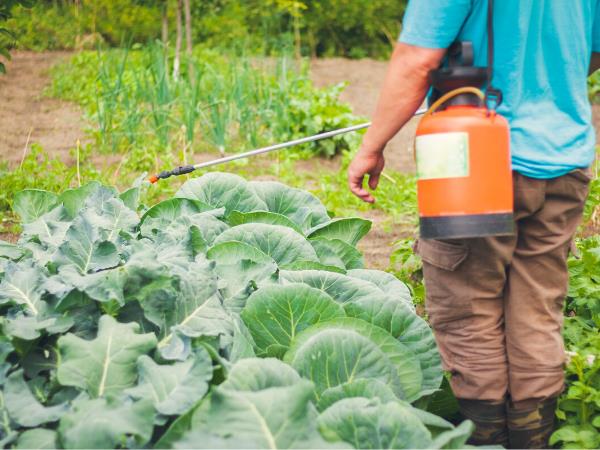 BOISE - On Wednesday H373, dealing with inmate trainee programs, was heard in Senate Judiciary and Rules Committee. This bill expands the current agricultural training program for inmates to allow them to work with all agricultural commodities rather than just perishable food crops. This comes as a benefit to both agricultural operations, who are seeking workers in an already difficult labor market, and to the inmate trainees, who are seeking real-world skills to prepare them for the workforce upon their release back to society. Senator Patti Anne Lodge (R-Huston) presented the bill to the committee. It was unanimously passed to be sent to the Senate floor with a do pass recommendation. To become law H373 still needs to pass the Senate floor and receive the Governor’s signature. IFBF supports H373.
BOISE - On Wednesday H373, dealing with inmate trainee programs, was heard in Senate Judiciary and Rules Committee. This bill expands the current agricultural training program for inmates to allow them to work with all agricultural commodities rather than just perishable food crops. This comes as a benefit to both agricultural operations, who are seeking workers in an already difficult labor market, and to the inmate trainees, who are seeking real-world skills to prepare them for the workforce upon their release back to society. Senator Patti Anne Lodge (R-Huston) presented the bill to the committee. It was unanimously passed to be sent to the Senate floor with a do pass recommendation. To become law H373 still needs to pass the Senate floor and receive the Governor’s signature. IFBF supports H373.
Top of the page
Meat Processing Tax
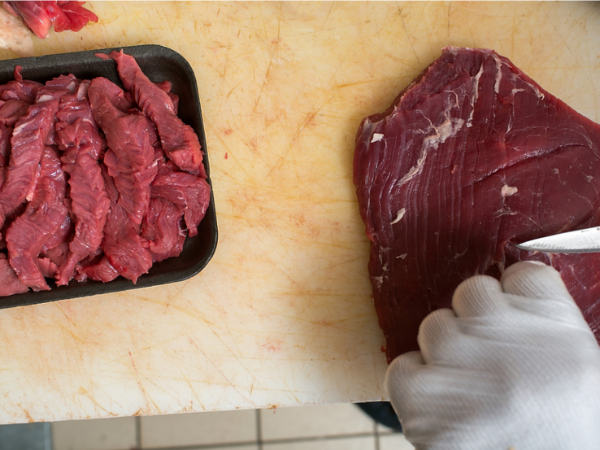 BOISE - On Tuesday, the House Revenue and Taxation Committee voted to send a bill to the floor with a Do Pass recommendation that would exempt meat processing from collecting sales tax on processing fees for an animal that will not have resale. H496 came about because of the current problem that arises when an individual takes their animal to a meat processor for personal consumption and must pay sales tax on the butchering, cutting and wrapping service. Idaho Code specifically exempts services from having to collect sales tax, yet there are still several services that have to collect sales taxes, many times through administrative rule. This bill would clarify that an individual does not have to pay sales tax on the processing fees of an animal they own and will be using themselves.
BOISE - On Tuesday, the House Revenue and Taxation Committee voted to send a bill to the floor with a Do Pass recommendation that would exempt meat processing from collecting sales tax on processing fees for an animal that will not have resale. H496 came about because of the current problem that arises when an individual takes their animal to a meat processor for personal consumption and must pay sales tax on the butchering, cutting and wrapping service. Idaho Code specifically exempts services from having to collect sales tax, yet there are still several services that have to collect sales taxes, many times through administrative rule. This bill would clarify that an individual does not have to pay sales tax on the processing fees of an animal they own and will be using themselves.
This bill is on the House Third Reading Calendar and was held until next week by unanimous consent. Thus, most likely, this bill will be voted on by the full House early next week.
Top of the page
Cattle Nutrient Plans
 BOISE - H356 passed the Senate Agricultural Committee unanimously on Thursday. H356 ensures that any cattle nutrient management plan that is submitted via the ISDA website cannot be disclosed and establishes that it is strictly proprietary information. Nutrient plans submitted through alternative modes to ISDA are all considered proprietary currently. This bill simply adds the clarifying language that producers who choose to use the web-based planner are also covered when it comes to protecting their proprietary information. To become law, H356 will have to pass the Senate floor and receive the Governor’s signature. IFBF supports H356.
BOISE - H356 passed the Senate Agricultural Committee unanimously on Thursday. H356 ensures that any cattle nutrient management plan that is submitted via the ISDA website cannot be disclosed and establishes that it is strictly proprietary information. Nutrient plans submitted through alternative modes to ISDA are all considered proprietary currently. This bill simply adds the clarifying language that producers who choose to use the web-based planner are also covered when it comes to protecting their proprietary information. To become law, H356 will have to pass the Senate floor and receive the Governor’s signature. IFBF supports H356.
Top of the page
Still can't find what you are looking for? Find by topic:
- Achievement Award (YF&R)
- Actions Alerts
- Advocacy
- Ag Ambassadors
- American Farm Bureau
- American Farm Bureau Policy Book
- Archive Photos
- Articles
- Board of Directors
- Calendar - State/District
- Calendar - County
- Capitol Reflections
- Collegiate Chapters
- Committee Application Form
- Commodities
- Convention Annual
- County Presidents & Board Information
- County Resource Page
- Delegate Form
- Discount Programs
- Discussion Meet
- Discussion Meet - High School
- Education Programs
- Events
- Excellence Award (YF&R)
- Expense Voucher
- Flickr
- Gem State Producer
- High School Discussion Meet
- High School Speech Contest
- Hope in Idaho Ag
- House of Delegates Credentials Form
- IFBF Board of Directors
- IFBF Policy Book
- IFBF Staff
- Insurance
- Legislative Action Program
- Legislative Issues
- Library
- MAC Trailer
- Magazines
- Map My Benefits
- Member Benefits
- Member Discount
- Membership Application
- Mission Statement
- Moving Agriculture to the Classroom
- Newsletter Sign up
- News Releases
- News Room
- Open Range Law
